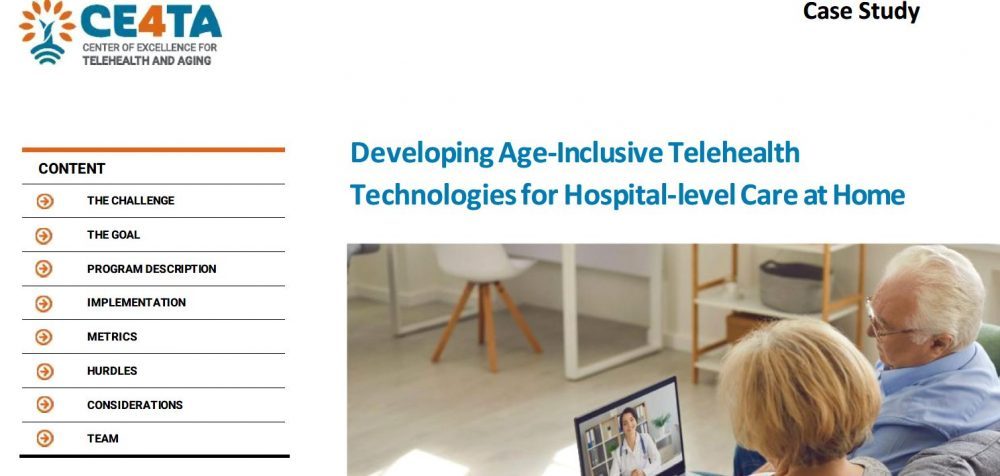Bringing attention to “ageism” and the common misconception that older adults aging >65 are unable or unwilling to use digital health. However, the use of technology among older adults has significantly increased during the COVID-19 pandemic.
A study testing the feasibility of ActiveHip+ mHealth tool to aid older adults post hip surgery.
A study measuring the impact that telehealth has in facilitating advance care planning (ACP) discussions for individuals with Alzheimer’s disease-related disorders as an alternative to in-person primary care visits.
A study addressing the potential barrier of digital literacy for geriatric patients accessing telehealth services. In the study, personalized technology support was provided to patients in the Geriatric Psychiatry division.
A retrospective cohort study that aimed to compare the rates of emergency department return visits and hospitalizations between patients who received in-person follow-up care and those who received telehealth follow-up care after being discharged from the ED.
Study aiming to investigate the prevalence and comorbidity of sleep disorders among United States military personnel and veterans, as well as the status of sleep care services at VHA facilities.

Case study highlighting how Medically Home’s technology and operational support are assisting health systems in delivering hospital-level care at home while addressing the unique needs of older adults.
A study addressing the potential barrier of digital literacy for geriatric patients accessing telehealth services. In the study, personalized technology support was provided to patients in the Geriatric Psychiatry division.
This study aims to investigate the prevalence and comorbidity of sleep disorders among United States military personnel and veterans, as well as the status of sleep care services at VHA facilities.
A study measuring telehealth’s impact in facilitating advance care planning (ACP) discussions for individuals with Alzheimer’s disease-related disorders as an alternative to in-person primary care visits.
Fact sheet that serves as a glossary for interpreters and health providers to. use with a glossary of terms related to Deaf, Hard of Hearing, and DeafBlind patients.

Article from IHI providing a framework for productive telehealth wellness checks for older adults using the Age-Friendly 4Ms (what Matters, Medication, Mentation, Mobility).